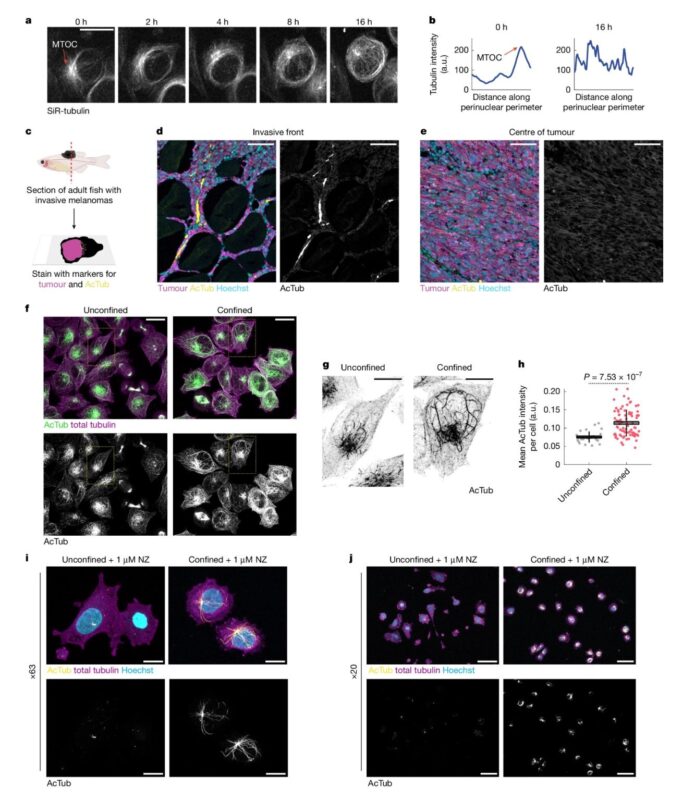George Kumar, Senior Director at AstraZeneca, shared a post on LinkedIn about a recent article by Miranda V. Hunter et al., published in Nature:
“Cancer cells feel the pressure—and change their identity.
Mechanical confinement governs phenotypic plasticity in melanoma.
New findings in Nature reveal that mechanical confinement—the physical pressure of surrounding tissues—can trigger cancer cells to switch phenotypes between proliferative and invasive states.
Key insights from zebrafish melanoma models and human samples:
- Mechanical confinement at the tumor–tissue interface remodels chromatin.
- Cells adopt a neuronal invasion gene program, including an acetylated tubulin cage that shields nuclei during migration.
- The DNA-bending protein HMGB2 acts as a confinement-induced regulator of this invasive, drug-resistant state.
- HMGB2-high cells trade off proliferation for invasion, becoming more resistant to therapy.
This study highlights the mechanical microenvironment as a powerful driver of cancer plasticity—reshaping how we think about metastasis and treatment resistance in melanoma.”

Figure Courtesy: Nature and Miranda V. Hunter Cancer Biology and Genetics Program, Memorial Sloan Kettering Cancer Center, New York, NY, USA
Title: Mechanical confinement governs phenotypic plasticity in melanoma
Journal: Nature
Authors: Miranda V. Hunter, Eshita Joshi, Sydney Bowker, Emily Montal, Yilun Ma, Young Hun Kim, Zhifan Yang, Laura Tuffery, Zhuoning Li, Eric Rosiek, Alexander Browning, Reuben Moncada, Itai Yanai, Helen Byrne, Mara Monetti, Elisa de Stanchina, Pierre-Jacques Hamard, Richard P. Koche, Richard M. White

More posts featuring George Kumar on OncoDaily.


